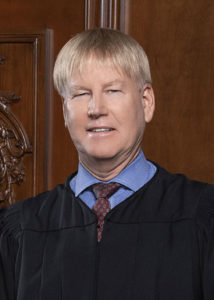The Nevada Supreme Court and Court of Appeals combined decide several thousand cases each year. The decisions include simple two-page orders and lengthy opinions addressing complex issues. How can appellate courts ensure that your case gets due attention?
This topic would have been addressed at the annual Nevada State Bar Conference in New Orleans. The June conference was canceled due to the COVID-19 Pandemic. Nevertheless, the issue was tackled in a July webinar hosted by the State Bar and presented by Chief Justice Kristina Pickering, Justice James Hardesty, Judge Bonnie Bulla, and myself, with Joel Henriod, Esq., as the moderator.
This was the second State Bar webinar I participated in this summer. The Nevada Family Law Conference in Bishop, California, in March 2020 was abruptly canceled halfway through due to the shutdown order in California. Judge Bulla, Judge Bridget Robb, and I were scheduled to provide the appellate case update, but we instead made the presentation via Zoom in June.
In lieu of talking with hundreds of Nevada lawyers at these two conferences, we spoke to dozens by video. The feedback from the participants was positive, but we wish we had more interaction. We also postponed appellate oral arguments in March but resumed them by video in May, which was successful. The problems experienced by the appellate courts, however, were trifling compared to the staggering amount of trials and hearings that had to be canceled or delayed in the trial courts. Meanwhile, the appellate court justices, judges, and staff could work from home with no reduction in efficiency because the record on appeal and the briefs from counsel are available electronically. We can also communicate by video, telephone or email to deliberate. Thus, the appellate courts have been able to ensure that your cases receive due attention.
In addition, appellate courts have a laser focus in reviewing cases. We rely upon the issues stated, the record presented, and the briefs of counsel. We do not look for new issues or information outside the record. Of course we conduct legal research, but it is critical for counsel to make a record in the trial court through pleadings, hearings and objections. Counsel can then direct us to the places in the record that document the trial court rulings and the supporting or contravening facts, and provide controlling precedent. Remember that many appellate decisions are guided by the abuse of discretion or substantial evidence standards; therefore, we give substantial deference to decisions made by the trial courts and juries.
Other authors in this issue of Communiqué will be discussing making the record, embedding counsel, and framing the appellate issues. These are important subjects for both trial and appellate counsel because the record made in the trial court is often the most important factor in determining the outcome of an appeal—whether in a pandemic or not.
About the author:

Chief Judge Michael
Gibbons was appointed to the inaugural Nevada Court of Appeals by Governor Brian Sandoval in 2014 and was elected in 2016. He previously served for twenty years as a district judge.
This article was originally published in the “Appellate Practice” issue of Communiqué, the official publication of the Clark County Bar Association, (September 2020). See https://clarkcountybar.org/about/member-benefits/communique-2020/communique-september-2020/.
© 2020 Clark County Bar Association (CCBA). All rights reserved. No reproduction of any portion of this issue is allowed without written permission from the publisher. Editorial policy available upon request.
